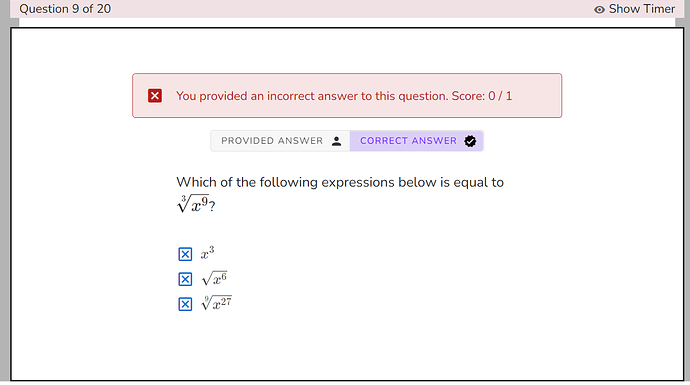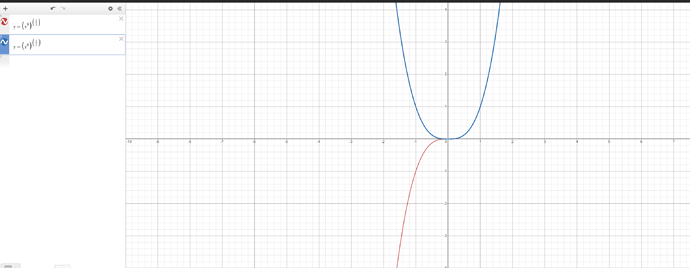Since we know GRE takes into account the positive value only for the square root of any number, then option B should be correct as well with that logic.
1 Like
I don’t think you need to care about +ve or -ve scenario with this one!
\sqrt[3]{x^9}= x^{9 \times{\frac{1}{3}}} = x^3
So option B is right as well?
(But when substituting a value, I realized Option B doesn’t match.  )
)
Even I had the same exact thought pop up while listening to Greg’s explanation. @gregmat , can you please confirm whether this is correct or not ?
In option B, you can plug in a negative x value to your heart’s content because the even exponent makes it positive before the root is applied.
Notice these two graphs are not the same:
Also, GRE does consider negatives under the radical if the root is odd

